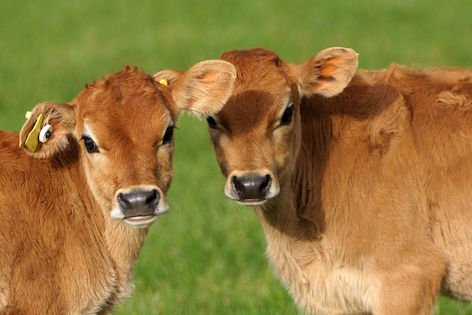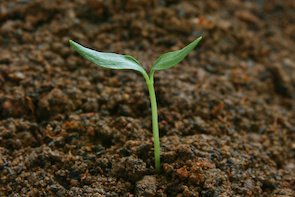Emission Delusion: How Focusing on Livestock Methane is Hurting the Environment and Society

In 2006, the United Nations's Food and Agriculture Organization (FAO) published a report entitled "Livestock's Long Shadow", purporting to assess the environmental impacts of livestock production. Animal production had long been criticized before this report graced our shelves. However, having the FAO step into the fray somehow seemed to drive yet another nail into the coffin of a way of life which has existed for millennia.
As rational beings, however, we should not let the prestige of a scientific body or personal credentials intimidate us from seeking the truth, and forming our own opinions on the matter. The key to interpreting any research is to remember that there are lies, dirty lies, and then, there are statistics. In essence, when reading scientific articles and reports, we should adopt the same mindset as a forensic accountant: we should appraise the information presented, but look even harder for the data that is missing. Looking for the missing puzzle pieces is a critical part of understanding the problem as a whole.
Not-So-Green Greens For instance, plant-based diets have traditionally been exalted as the way of the future. The argument goes like this: vegetarian and vegan diets produce fewer greenhouse gas emissions. Furthermore, they are more efficient because we consume the plant's nutrients ourselves, instead of having them transformed by livestock first (more on this later). So, the reasoning goes, we should ditch the bacon and embrace everything vegetative. However, this argument is facile, and overlooks the elephant in the room: food waste. Food waste is the third biggest greenhouse gas producer in the world, according to the FAO. It is only out-ranked by China and the USA. Furthermore, food waste is an ethically-loaded problem: is it morally correct to throw out one-third of food produced globally, when an estimated 792 million people on this planet suffer from malnutrition? Moreover, wasting this much food is calculated to cost 792 billion USD per year. It would seem to me, then, given the environmental, ethical, and economical implications of food waste, that we should tackle this issue first, before trying to change dietary habits. If we truly want to control GHG emissions, it makes much more sense mathematically to attack food wastage before we start tarnishing livestock production. Yet, meat, dairy, and poultry products remain a prime target for environmentalists and the media alike.
How have our priorities become so muddled, and such an important fact been overlooked? There are a myriad of possible explanations. We cannot ignore, however, that modern science is increasingly becoming an echo-chamber. The grant-procurement and peer-review processes ensure that subsequent studies will follow in the footsteps of previous research. While this can be a good thing, it can also reinforce poor methodology and a narrow understanding of certain issues, if the first studies on the matter were plagued with these problems. I believe the (potentially unjustified) scientific focus on livestock production has simply shifted to the public square, where it has eclipsed other significant problems. I also believe we would be singing a different song if criticism of livestock production hadn't somehow become a test of scientific orthodoxy, and if environmental scientists had retained a healthy criticism of their own methods, perceptions, and limitations.
Assessing the Assessments Life Cycle Assessment (LCA) studies have been particularly plagued by a narrowed paradigm of environmental thought. In theory, LCA provides us with an understanding of the environmental impacts of a process. However, it has been very poorly adapted to agriculture, and is thus of limited use. Yet, it remains the main type of study used to back the claims that vegetarian diets are cleaner and greener. In fact, LCA studies were carried out for years without even considering the environmental impacts of soil and water use in agriculture. This is extremely puzzling at best, and completely daft and irresponsible at worst, considering the inseparable association between soils and food production.
Life Cycle Assessment is also guilty of overlooking the environmental benefits of agriculture. Green crops filter the air we breathe. Farmland provides a matrix for water percolation and purification, recharging underground aquifers. Herbivorous livestock consume grasses that sequester carbon in their expansive root systems, and prevent soil erosion. Cattle, sheep and goats also consume legumes such as alfalfa, which form an association with bacteria that fix atmospheric nitrogen, and reduces reliance on synthetic fertilizers. With good management, forage crops will leave the soil in better health than it was found, as opposed to many human food crops (such as the cabbage family) that impoverish soil extremely quickly unless large amounts of fertilizer are added. Yet, livestock farming practices that are undeniably good for soil health somehow still get blackened because of greenhouse gas emissions.

Clearing the Air on Livestock Production Livestock have also been accused of contributing to food insecurity, by consuming grains that could be eaten by humans. However, this argument proves little and only reveals a misunderstanding of modern agri-food systems. For one, livestock consume many grain by products that result from processing of human foods – soybean and canola meal from oil extraction, corn "gluten" meal from wet milling of corn, and brewer's grains from ethanol production and brewing are some examples. The environmental impacts of these byproducts are usually accounted to the environmental sins of livestock, which is highly questionable thinking. These grain products would be wasted if they weren't consumed by farm animals, so it would make more sense to credit livestock for the services they are rendering us by turning feedstuffs of low palatability into nutritious and tasty foods.
How should we respond to this convoluted and confusing situation? For one, I believe we need to properly prioritize the problems we need to address. Food waste should be reduced much before we try to eliminate animal products from our diets. Secondly, we should not let activists, scientists, policy-makers, or the media decide on our own value system, since they are clearly just as fallible and prone to error as we are. By focusing so much on climate change, we have limited discussion on the ancillary environmental benefits of agriculture, as well as the other ways it can impact the environment. Thus, a value judgement has been made: greenhouse gas emissions are more problematic than soil degradation or water pollution, and much too important to consider the benefits that farm land and livestock provide.
Lest I be accused of being a climate-change denier for suggesting that we form our own environmental values, I will say this: climate science is a relatively young science. It is a game of probabilities and statistics, and still has trouble getting the forecast for tomorrow right - let alone the next century. Furthermore, it is quite difficult to tease apart human and natural influences on climate. So, I also suggest we start focusing again on environmental problems which can be easily quantified (such as soil health and water quality), and over which we exercise much more direct control than climate.
If we follow this approach, we will at least have accomplished something tangible for the environment, while the rest of us are still scratching our heads about how to best tackle GHG emissions. Interestingly, China and India have gone through massive industrialization, resulting in pretty impressive water pollution, right at a time when climate change is being considered the greatest threat to humanity by some. So, I hope we will not let ourselves forget certain types of environmental issues simply for the sake of the "new kid on the block".
In conclusion, I would like to re-iterate that it is our responsibility to educate ourselves and think for ourselves. Life Cycle Assessment has become the standard for analyzing the environmental impacts of agriculture. Yet, most LCA studies are deeply flawed, in failing to recognize the environmental benefits of farmland, the contribution of forage crops to soil health, and the role of livestock in recycling by products. This last point is of particular interest, considering the global problem of food wastage. So, I guess the bottom line is this: think for yourself. Look for the information nobody will tell you about. And, please do not swallow everything the media and academia try to feed you.
Photo credits:
Jersey Calves: http://www.123rf.com/profile_petervick167'>petervick167 / 123RF Stock Photo
Seedling in soil: http://www.organiclifestylemagazine.com/how-to-test-and-amend-soil
That was a great read. Whenever I see studies that demonize certain form of agriculture or energy I always ask myself this question: "Compare to what?"
Usually, the alternative is even worst than the current "problem"...if there is one.
Thank you, @cryptoctopus. I fully agree with you about needing to compare apples to apples! I did not mention the environmental impacts of fruit and vegetable production, because I couldn't find any information on it. It's really easy to say that meat is "worse" than a plant-based diet, because we're comparing meat to a standard that doesn't even exist!
The problem I have is that people get so wrapped up in forcing their ideology on the public that they don't look at the ramifications.
One of the things you pointed out is byproducts, if we were to reduce livestock those byproducts would be wasted. By reducing livestock you also reduce the source of natural fertilizers.
How about beyond that, you reduce livestock you reduce the number of jobs associated in the area. People that live in rural areas then move to more urban areas for work. More people you have in one area the denser the pollution is in that area.
Not only that buying habits change. Urban areas tend to have small homes which means frequent shopping trips buying smaller quantities, those that live in rural areas tend to look for multipacks and reusable items which have less packaging and waste when they have the space.
There is a cause and effect relationship in everything we do.
Those are excellent points, @patrice. I definitely agree with you about shopping habits. Growing up in a rural area, we went into town once every week at most. Moving to the city for my studies was a huge culture shock in that sense. Not only do people shop without limit, it's also seen as a form of entertainment when you don't have anything else to do.
Keep up the great work @alexbenjalbert
Upvoted
Hi! This post has a Flesch-Kincaid grade level of 12.2 and reading ease of 46%. This puts the writing level on par with academic journals.
Upvoted